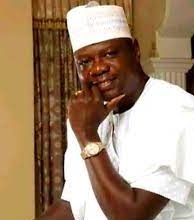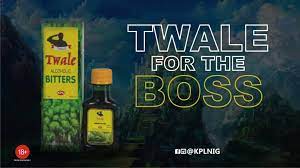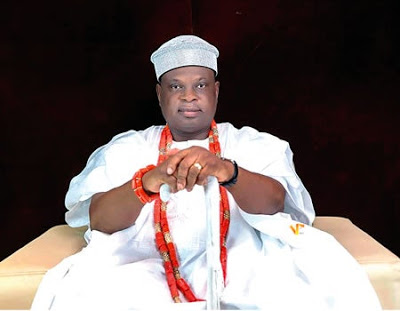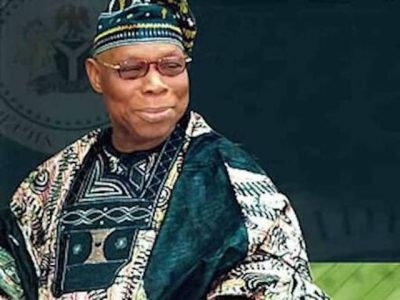By Simon A. FAKEYE
In his purported investigative report, Fisayo Soyombo aimed his arrows at Chief Ibrahim Dende Egungbohun, known as IBD, alleging his involvement in smuggling proceeds to build IBD International Hotels, Ilaro-Yewa, Ogun State.
However, across his extensive 4,519-word narrative, Soyombo provides no concrete evidence to support his defamatory claims, raising questions about his journalistic integrity.
Soyombo’s report takes a sensational turn when he links Chief Egungbohun to political figures like President Bola Ahmed Tinubu, insinuating a connection during the 2023 General Election. This leap seems calculated to undermine President Tinubu by tarnishing the reputation of his perceived adversaries.
Despite professing to be a seasoned journalist and investigator, Soyombo’s failure to procure official documentation from Nigeria Customs, regarding Chief Egungbohun’s alleged arrests, casts doubt on his methods.
Relying solely on hearsay and conjecture, Soyombo’s motives appear suspect, potentially driven by personal or political agendas rather than the pursuit of truth.
Soyombo’s portrayal of Chief Egungbohun as both a smuggler and a licensed clearing and forwarding agent lacks coherence, suggesting a lapse in judgment or perhaps an intoxicating influence clouding his reasoning.
Ultimately, Soyombo’s scathing character assassination lacks substance, relying on unsubstantiated claims and questionable associations. It raises concerns about journalistic ethics and the responsibility of reporters to uphold truth and accuracy above all else.
Jide, the individual mentioned in Soyombo’s report, inadvertently disclosed details of their smuggling activities to Soyombo during their first trip to Benin. Soyombo himself acknowledges Jide’s frustration with Customs officers, believing that they give leniency to prominent smugglers like Chief Egungbohun while cracking down on smaller ones like himself.
However, it’s crucial to ascertain whether Chief Egungbohun was truly involved in smuggling foreign parboiled rice, as alleged by Soyombo’s informant. The truth, unequivocally, is no. This glaring inconsistency underscores Soyombo’s biased agenda to smear the reputation of his principal’s political adversary.
Soyombo’s reliance solely on information provided by an antagonistic source without thorough investigation demonstrates his willingness to manipulate facts for his own agenda.
Moreover, in paragraph 28 of his report, Soyombo quotes former President Muhammadu Buhari discussing the rampant smuggling in Nigeria, yet fails to provide substantial evidence to support the allegations against Chief Ibrahim Egungbohun regarding gun running. He neglects to identify the arrested individuals, clarify the evidence of the seized guns, or detail the legal proceedings.
Soyombo’s failure to delve deeper into the gun running ring, or quote any suspects implicating Chief Ibrahim Egungbohun as their leader, raises suspicions about the veracity of his claims. His haste to propagate unfounded accusations against Chief Ibrahim Egungbohun, a staunch supporter of President Tinubu, smacks of politically motivated character assassination.
In essence, Soyombo’s report lacks credibility, marred by its reliance on biased sources and its failure to substantiate serious allegations. It underscores the need for responsible journalism, grounded in facts and impartiality, rather than sensationalism and political vendettas.
Soyombo’s account of his trip to Benin Republic to witness rice smuggling into Nigeria appears more like a fabrication than genuine investigative journalism. He depicts Adja Ouere as a hub for rice smuggling, yet fails to acknowledge that the dealers there primarily engage in legitimate business, selling to wholesalers rather than retailers like him.
Curiously, Soyombo admits to personally smuggling 100 bags of foreign parboiled rice into Nigeria without encountering any interference from Chief Ibrahim Egungbohun, whom he implicates as the mastermind behind smuggling activities along the Oja-Odan/Adja Ouere axis. This contradiction raises doubts about the authenticity of Soyombo’s narrative.
Moreover, Soyombo’s assertion that there is a one-way road within a kilometer radius of the Foursquare roundabout in Oja-Odan, Yewa North LGA of Ogun State, lacks substantiation. Similarly, his claim that the road from Federal Polytechnic, Ilaro to Iyana-Egbo is precisely five kilometers seems arbitrary and unverified.
Throughout his report, Soyombo heavily relies on the account of one individual, Jide, to vilify Chief Ibrahim Egungbohun as a smuggler of rice and guns. Yet, he fails to provide concrete evidence implicating Chief Egungbohun, whom he has never met or witnessed engaging in smuggling activities.
The selective targeting of Chief Ibrahim Egungbohun amidst numerous wealthy individuals along the 1,600-kilometer border lines raises questions about Soyombo’s motives. Moreover, his failure to mention any Customs officers by name further undermines the credibility of his allegations.
Soyombo’s refusal to allow Chief Ibrahim Egungbohun the opportunity to address the accusations before going public demonstrates a lack of journalistic integrity, violating basic principles of accuracy, fairness, and balance.
It is unlikely that the donors of the Wole Soyinka Centre for Investigative Journalism (WSCIJ) or the Collaborative Media Engagement for Development Inclusivity and Accountability project (CMEDIA), funded by the MacArthur Foundation, would condone such shoddy reporting from an investigative journalist.
Ibrahim Dende Egungbohun is a Nigerian businessman with a background in carpentry and freight forwarding. After learning and practicing as a carpenter in Ebute-Igbooro, Yewa North LGA, Ogun State, Egungbohun transitioned to the freight forwarding business in the early 1990s, under the tutelage of a prominent figure in the industry.
Over time, Ibrahim Dende Egungbohun established himself as a reputable and trustworthy figure in the auto business, attracting high-profile clients. His registered company primarily engaged in legitimate freight business, including the clearing of automobiles and foreign parboiled rice through the land borders, which was permitted by the government until changes in policy.
Following the government’s decision to ban the importation of rice and vehicles through land borders, Egungbohun shifted his focus to other lawful ventures, demonstrating his commitment to abide by the law and contribute positively to Nigeria’s development.
Egungbohun emphasized his adherence to the Nigerian constitution and his dedication to lawful operations. He diversified his business interests into various sectors, including commercial farming, hospitality, oil and gas, quarrying, and construction, under registered firms such as IBD IMPEX Ltd, IBD Farms, IBD International Hotels, IBD Oil and Gas, and IBD Constructions.

Despite the changes in government policies affecting his primary business, Egungbohun remained resilient and adapted by leveraging his diversified portfolio. He expressed his loyalty to Nigeria and his determination to contribute to its progress, affirming his commitment to lawful conduct and compliance with government regulations.
“Those who are ignorant, I don’t perceive them as potential blackmailers; they are simply individuals who believe in shortcuts! It’s their lack of understanding that leads them to assume I am involved in smuggling.
“Frankly, the proliferation of fake news and outright lies has become a significant obstacle to the progress of our country. Given the current state of affairs, I may contemplate strategic measures to address this issue so that, collectively, we can mitigate the impact of fake news in our society,” Chief Ibrahim Dende Egungbohun asserted.




















